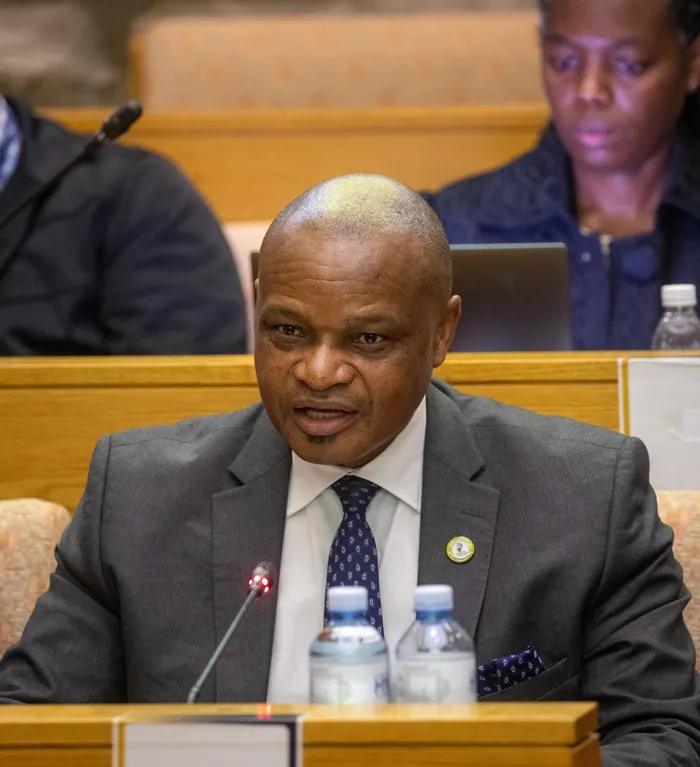SIU's innovative framework to strengthen anti-corruption measures

Special Investigating Unit head Andy Mothibi says the corruption-busting unit ahs drafted a National Corruption Risk Management and Prevention Framework, which is in the process of being considered and will be considered by Cabinet as part of implementing the national-anti corruption strategy
Image: File
Acting police minister Firoz Cachalia has thrown his weight behind the anti-corruption framework spearheaded by the Special Investigating Unit (SIU) aimed to prevent corruption in the organs of state.
Speaking at the meeting of the Standing Committee on Auditor-General on Friday, Cachalia noted that the country has been in a period of legislative reform aimed at strengthening legislation, expanding the powers of the Auditor-General (A-G) to refer matters to the bodies charged with criminal investigation and trying to strengthen both regulations and anti-corruption.
“We have to strengthen both proactive prevention, and then after the fact, punitive action,” he said.
Cachalia made the comment after SIU head Andy Mothibi announced that they have drafted the National Corruption Risk Management and Prevention Framework when the corruption-busting unit briefed the committee about the material irregularities that were referred by the A-G for investigations.
Mothibi told members of parliament (MPs) that their focus going forward was to implement prevention measures in the fight against corruption.
“We have culminated into the development of a National Corruption Risk Management and Prevention Framework, which is in the process of being considered and will be considered by Cabinet, ultimately, as part of implementing the national anti-corruption strategy,” he said.
Mothibi also said their contribution was based on the experiences they have gained from their investigations on how to close and mitigate the exposure of government to corruption in procurement.
“We really require to monitor consequence management, holding all those to account, recovering the monies and criminal investigations and prosecutions and the implementation of systemic recommendation. The prevention work is to zoom in on the systemic investigations, look at where the system is weak to prevent the measures.”
He added that it was very important that all of the systemic recommendations they have made should be included in the audit plans of state institutions so that they can monitor whether the controls were being put in place to prevent the recurrence.
“That will help if there are repeat findings on these issues. Then, obviously, the consequence management will happen on all those who caused repeat findings.”
Mothibi said they have made presentation on the framework to the Forum of Directors-General (FOSA) and it will go to the Justice, Crime Prevention and Security (JCPS) cluster of ministers, and thereafter Cabinet.
“We are targeting the next JCPS of ministers meeting, and then it should really be processed to cabinet, which I see happening probably in the next quarter,” he said.
“This process should be finalised because it's such a big requirement to coordinate the prevention, maladministration, malpractice, corruption prevention across state institutions.”
He added that the framework has been shared with the A-G and that they were pleased that they went through it.
“They gave us some comments, and we look forward to their critical role in the prevention space.”
A presentation SIU made to the standing committee said the National Corruption Risk Management and Prevention Framework (NCRMPF) was a working document currently in its fifth draft.
It said the reactive approach to corruption has proven not to be totally effective in eliminating corruption.
“In some instances, consequence management meted out to offenders has also proven not to be enough to serve as deterrence.”
The presentation also stated that some corruption prevention measures remain largely fragmented, uncoordinated and unstructured as a result they do not have the desired impact in reducing corruption.
“The NCRMPF seeks to operationalise the pro-active element of the National Anti-Corruption by providing a clear guideline to properly structure corruption prevention initiatives.”
mayibongwe.maqhina@inl.co.za